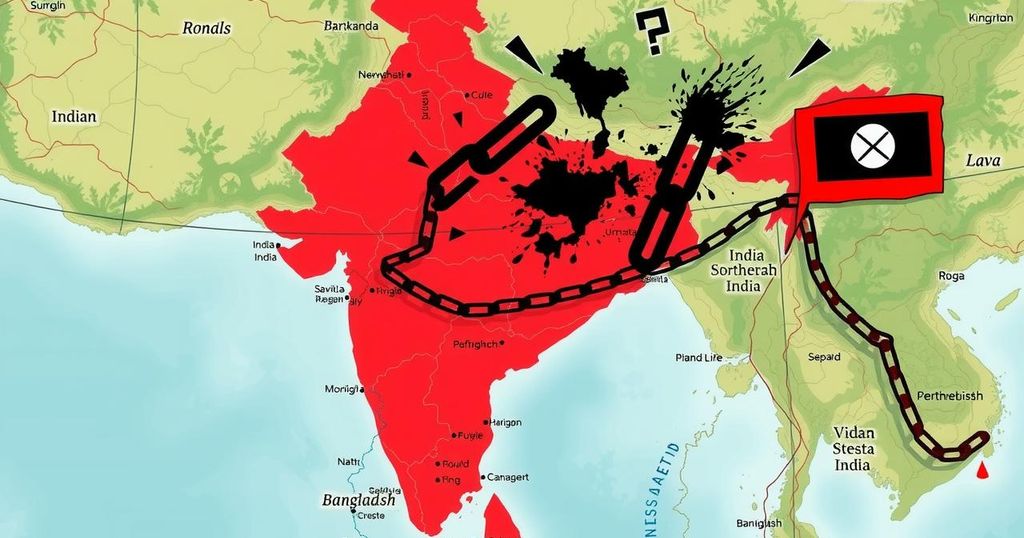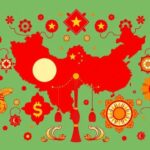Politics
AFRICA, ASIA, BANDERBAN, BANGLADESH, BURKINA FASO, CHAKMA, CHINA, CHITTAGONG, DE, DEBBARMA, DEMOCRACY, DHAKA, FOREIGN POLICY, GARO, INDIA, INTERNATIONAL RELATIONS, KHAGRACHARI, KHAS, KHASI, LEADERSHIP, MANI, MANIPURI, MEXICO, MOHAMMED YUNUS, MUHAMMAD YUNUS, NORTH AMERICA, SEVEN SISTERS, SYLHET, TIPRASA, TRIPURA, US, YUNUS
Nia Simpson
Political Parties in Tripura React Strongly to Bangladesh Advisor’s Remarks
On April 2, 2025, Tripura’s political parties sharply criticized Bangladesh advisor Muhammad Yunus for his comments made in China, urging a strong response from India. They highlighted the need to address local grievances and international threats while asserting India’s sovereignty.
On April 2, 2025, both ruling and opposition parties in Tripura condemned Professor Muhammad Yunus, the chief advisor of Bangladesh’s interim government, for remarks he made during his recent visit to China. Yunus suggested that Bangladesh serves as the “only guardian of the ocean” for Northeast India, prompting calls for a robust response from the Indian government.
Pradyot Kishore Manikya Debbarma, the founder of TIPRA Motha and a ruling party member, described Yunus’s remarks as an “indirect threat” to the northeastern states. He urged the Indian government to address this situation proactively, emphasizing that historical connections and the plight of indigenous tribes in Bangladesh should not be overlooked while formulating a strategic response.
Debbarma pointed out that previous leaders like Donald Trump and Vladimir Putin effectively negotiate with neighboring countries from positions of strength. Highlighting the historical ties between India and Bangladesh, he expressed concern about the current threats posed by Yunus, asserting that Indian tribal populations in Bangladesh have faced long-standing issues of oppression.
Furthermore, Debbarma remarked that Yunus’s statements serve as a dangerous provocation, indicating the need for India to respond decisively. He affirmed the readiness of the Tiprasa community to engage in dialogue with the Centre and emphasize their historical claims to territories formerly under Tripura’s rule.
The proximity of Tripura to Chittagong Port in Bangladesh was underscored, as significant infrastructure like the Feni Bridge was intended to enhance connectivity and trade opportunities. Former Congress MLA Sudip Roy Barman also criticized Yunus’s comments, viewing them as direct threats to Northeast India’s integrity and urging the government to explore avenues for maritime access.
CPI(M) leader Jitendra Chaudhury dismissed Yunus’s comments as immature, asserting that international law dictates access to the sea and cannot be leveraged by personal whims. He condemned the statements as mere pressure tactics and expressed confidence that the Indian government is taking appropriate measures in response to the situation.
BJP representative Nabendu Bhattacharjee supported this, affirming that the Indian government is implementing strategies to protect its territorial interests and that Yunus’s remarks reflect his desires to elevate his status internationally amid the uncertain circumstances in Bangladesh.
Yunus’s comments, aired during his visit to China from March 26-29, were perceived as part of a broader agenda to strengthen Chinese economic presence in Bangladesh, raising alarms among Indian lawmakers about the geopolitical implications for Northeast India.
In summary, the remarks made by Professor Muhammad Yunus sparked significant outrage among political factions in Tripura, emphasizing concerns regarding sovereignty and regional integrity. Key leaders called for a strong governmental response to what they perceive as threats from Bangladesh. Both ruling and opposition parties stressed the importance of history and current geopolitical dynamics in formulating an effective strategy to counteract external pressures on Northeast India.
Original Source: indianexpress.com








Post Comment